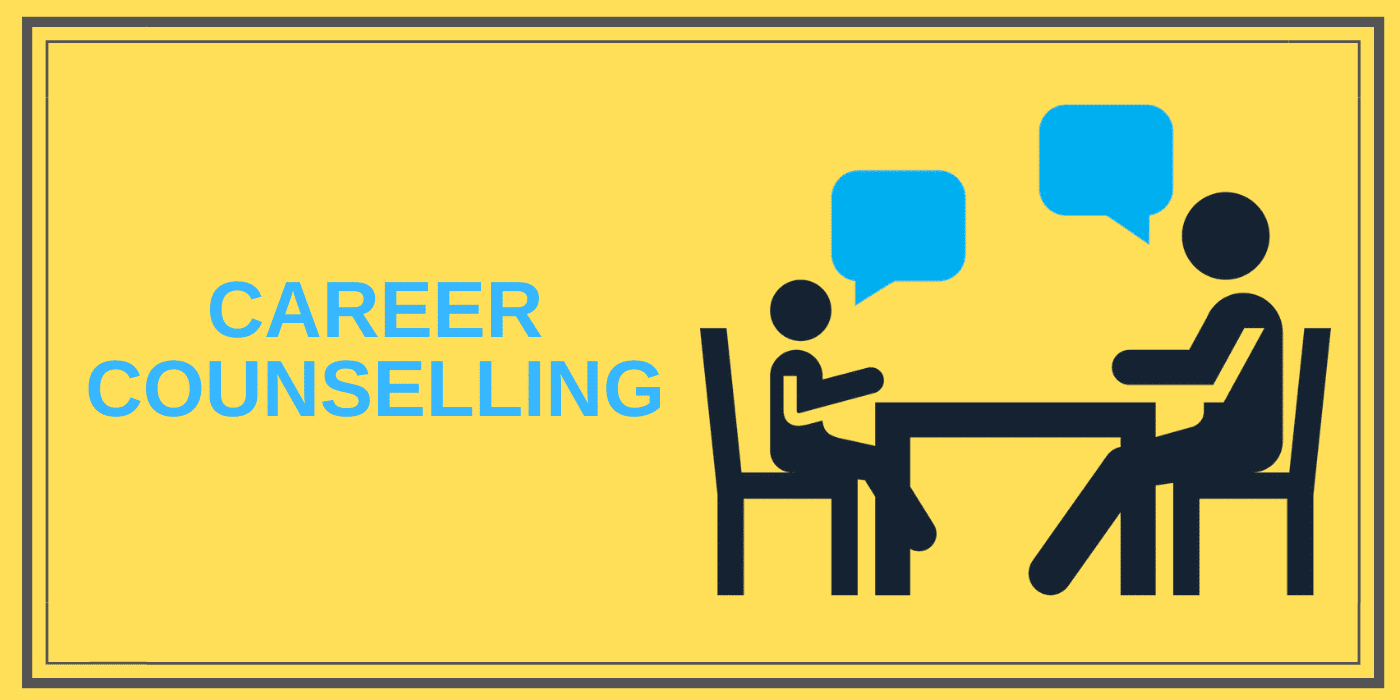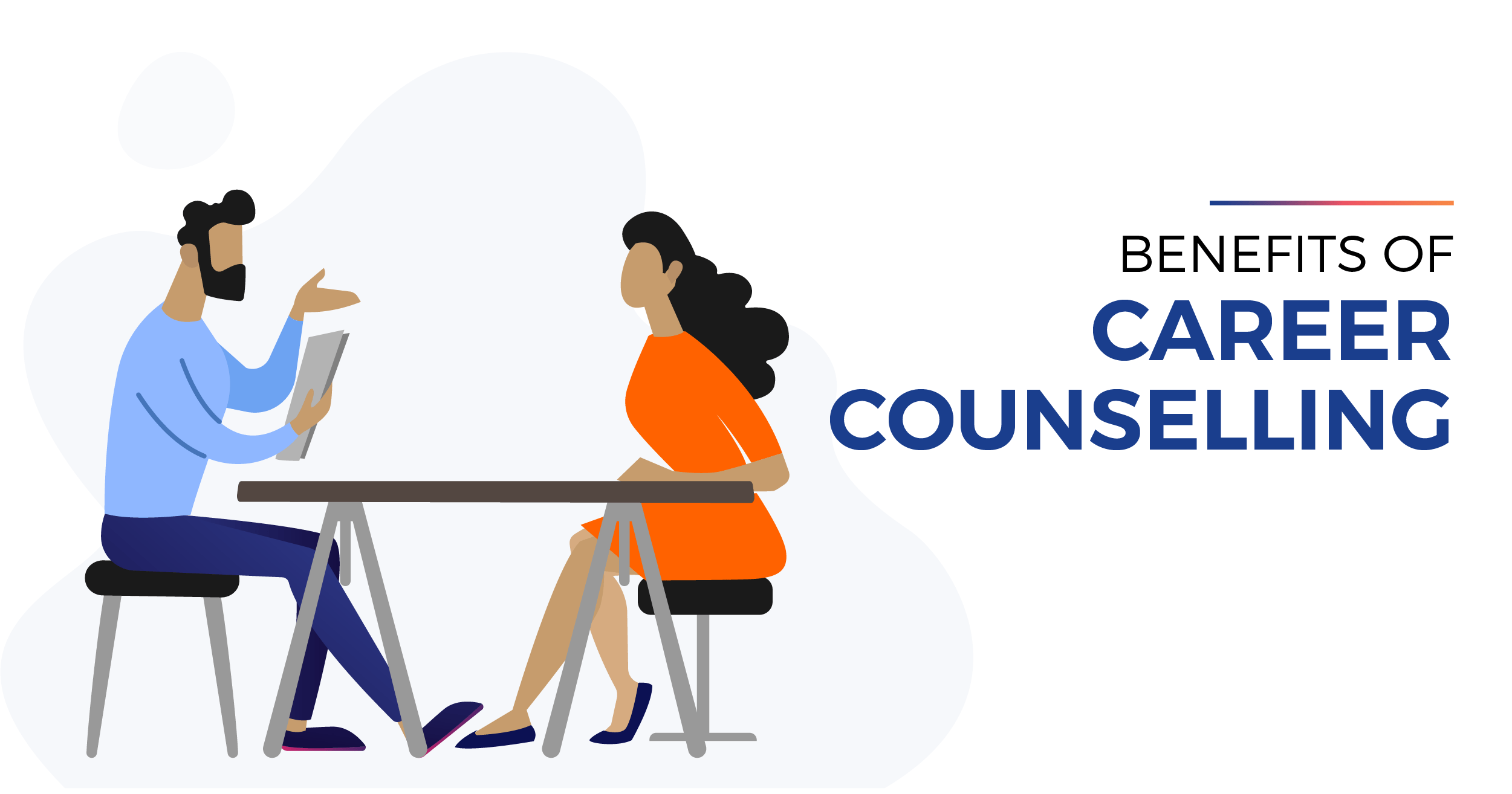Contents
- 1 What Is Career Counseling?
- 2 What To Expect From Career Counseling?
- 3 Career Counseling Techniques
- 4 Benefits of Career Counseling
- 4.1 Helps To Give Career Options
- 4.2 Helps To Build Self-Confidence
- 4.3 Helps In Making The Right Decision
- 4.4 Helps In Setting And Achieving Goals
- 4.5 Helps Reduce Stress Levels
- 4.6 Helps To Find Right Job
- 4.7 Improves Time Management Skills And Self-Discipline
- 4.8 Improves Overall Well Being Of An Individual
- 4.9 Helps To Identify Needs And
- 5 Common Career Counseling Mistakes
- 6 Tips To Keep In Mind While Career Counseling
- 7 Conclusion
What Is Career Counseling?
 Career counseling is a professional service that helps you make better decisions about your career and education. Career counselors may work with individuals or groups, in person or online. This counseling can help you explore options, set goals, and find the best way to achieve them.
Career counseling is a professional service that helps you make better decisions about your career and education. Career counselors may work with individuals or groups, in person or online. This counseling can help you explore options, set goals, and find the best way to achieve them.
People go into career counseling for many reasons. They may want to change careers or schools because they are unhappy with their current jobs or education situation. They might simply need more information about different fields of work. This is so that they can make informed choices. This can be regarding further studies or job applications. Career counselors often have a broad range of knowledge. This can be in various areas related to your concerns. That is why it’s important for you to choose someone who has experience dealing with people facing similar issues as yourself. Your counselor should also ask questions and listen carefully so he/she knows what kind of advice would be most beneficial for you.
Career counselors usually work with their clients one-on-one. They may use a variety of different types of counseling and therapy. These are including career assessment tests or vocational interest inventories; resume writing tips; discussion groups on choosing schools or finding jobs; workshops on job interview skills or interviews with people already working in your chosen field.
What To Expect From Career Counseling?
In career counseling, you’ll discuss:
* Where you are now – what skills and experiences do you have?
* Where you want to be – how can the counselor help prepare for future opportunities based on your interests and goals?
There will likely be an emphasis on self-reflection at first so that both of these questions can get answered effectively. You might also gain strategies for finding jobs related to your field of interest. You might also get financial management advice if needed.
Career Counseling Techniques

In career counseling, you might use a variety of different techniques to get the most out of your session. These can include:
Career Exploration
You and your counselor look at various occupations that match your interests, values, or personality traits. They then analyze which ones would suit you best based on available job opportunities in the area. There are other factors such as salary levels and employment outlooks for each profession.
Personality Inventories
These tests gather information about how people feel about their own behavior styles. This is why they can understand what type of work environment is ideal for them or whether they will fit into certain types of careers well. There are several different tools used. These are including Myers Briggs Type Indicator (MBTI) and the Strong Interest Inventory (SII).
Work Values
You and your counselor discuss the values that are important to you. This is so they can help suggest careers or education paths. For instance, if security is very important to you because of family issues in the past, working in law enforcement might be an ideal option for a career. However, someone who cares more about flexibility may want to move into teaching instead.
Benefits of Career Counseling

There are many benefits of career counseling. Some of these are:
Helps To Give Career Options
This counseling helps individuals to give career options. It assists in understanding the interests, skills, and personality traits of an individual so that they can choose a field where their abilities are used correctly. Career counselors guide individuals on how to use their strengths for maximum benefits.
Helps To Build Self-Confidence
This counseling helps people have confidence in themselves because it reveals hidden talents that the individual might have. It also helps them to know their limitations and work on them so they can do better in their careers.
Helps In Making The Right Decision
Individuals who seek career counseling are usually at a point where they need to make a decision about their future. This counseling will help them weigh all the options and make the right decision for themselves.
Helps In Setting And Achieving Goals
Career counselors assist people in setting realistic goals and achieving them step by step. They create a plan of action that is achievable and monitor it until the goal is accomplished. People achieve things faster with guidance from career counselors.
Helps Reduce Stress Levels
When an individual knows what they want in life and are working towards it, their stress levels decrease. Career counselors help reduce the stress of individuals by giving them something to work towards and achieving that goal at the end.
Helps To Find Right Job
Career counseling helps an individual find a job that is right for them so they do not have to keep hopping from one company to another because they are never satisfied with what they get. It also gives people skills for resume building and interviewing so that employers take note of them immediately when applying for jobs.
Improves Time Management Skills And Self-Discipline
Time management becomes easy through career counseling since all the time spent on exploring different options gets condensed into specific tasks related to career planning which can be achieved within agreed deadlines or speedily if possible. This gives people the opportunity to work on their time management skills and self-discipline.
Improves Overall Well Being Of An Individual
When an individual knows what they want in life and are working towards it, not only does their career path improve but so do other aspects like relationships because those who follow goals become happier overall thanks to improved health, better lifestyle choices etcetera that comes about from focusing more on themselves than others all the time.
Helps To Identify Needs And
Career counseling helps an individual identify their needs and what they really want in life. They become more self-aware of themselves and know how to get rid of things that hold them back from achieving success in the professional arena as well as personal aspects like relationships, friendships etcetera. It also teaches people skills for coping with stress or taking on challenges so they keep growing rather than stagnate at one point throughout their lives.
Common Career Counseling Mistakes

There are some common mistakes people make when it comes to career counseling:
Not Being Honest With Yourself
This is one of the biggest factors that lead to poor results during sessions; don’t let past experiences or feelings get in the way of finding out what you really want for your future self. Not keeping an open mind about new opportunities unless they’re truly right for you – not all options may be immediately available, but there’s always something better down the line if necessary (.e., internships).
Using Wrong Tools
Counselors often have certain assessments they can use to find out more about somebody’s unique personality or work preferences. However, these tools are only helpful if you actually take them and answer honestly so that your results reflect who you really are as a person (.e., lying on an assessment is useless). Not Listening
This ties into being honest with yourself; listen carefully for any clues that might help you gain new insights during sessions or afterward when it comes time to look for jobs in the field of interest. This includes things like paying attention to feelings, listening without distractions (turn off the phone), not interrupting others while they speak, etc.
Over-Analyzing Things
Sometimes taking some time before making a final decision is the best course of action. However, you shouldn’t overthink things either; it’s good to take some time and think about your options in order to make an educated choice later on but there comes a point where everything becomes clear (.e., too much deliberation leads to indecision).
Making Assumptions
This ties into not being honest with yourself because sometimes people assume they know what career path would be right for them when this isn’t necessarily true. You may discover that something else ends up making more sense or seems like the better option after all depending on how effective counseling goes (which is why it can help improve self-esteem/confidence if necessary).
Doing It Alone
It might seem like it would be more efficient to go through career counseling alone but this is one of the biggest mistakes because there are so many benefits you can gain from having someone else’s perspective. When doing things alone, you may not notice important details that could help guide your decision-making process in a different direction than before.
Getting Stuck
There will always come an inevitable point where people just don’t know what to do anymore or they feel like they’re at their wit’s end with trying to figure out the best plan for the next steps; this is normal and sometimes counselors can provide helpful insight during these periods when somebody needs further guidance (.e., how to get unstuck). Not using all available options such as talking about your situation with friends or family members, trying to relax and take it easy for a little while before diving back into things, etc.
Tips To Keep In Mind While Career Counseling

These are some of the things to keep in mind while career counseling:
- Be honest and open about your feelings
- Use the right tools that can help you gain some new insights into yourself or potential career paths; find out more about assessments available to learn more about this topic.
- Listen carefully during sessions, don’t be distracted by other things, and try not to interrupt others when they’re speaking. Don’t assume you know what’s best for yourself because it could end up being a mistake in the long run (good advice for life generally).
- Take time if necessary but avoid overthinking things too much which leads back to tip # two here on the list of tips while attending counseling.
- Allow all options to be available such as talking with family members/friends and trying relaxing techniques before getting into work mode again – sometimes these things can really help.
Conclusion
It is important to have professional help when it comes to career counseling. There are many different types of careers that are available for each individual but not all will be a good fit for them. When consulting with someone on their career path, consider the following things: what you want out of life, strengths and weaknesses, personality type, personal values/beliefs, interests, and passions.
If you are looking for affordable Online Counseling MantraCare can help: Book a trial therapy session


